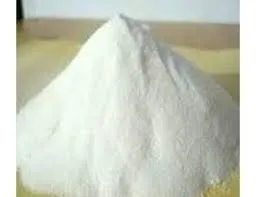
des . 03, 2024 15:02 Back to list
methylhydroxyethyl cellulose
Understanding Methyl Hydroxyethyl Cellulose Properties, Applications, and Benefits
Methyl Hydroxyethyl Cellulose (MHEC) is a non-ionic cellulose ether derived from natural cellulose through chemical modification. It is widely recognized for its unique properties, versatility, and extensive applications in various industries. This article will delve into the characteristics of MHEC, its numerous uses, and the benefits it provides across different sectors.
Properties of Methyl Hydroxyethyl Cellulose
MHEC is characterized by its white, odorless powder form, which is readily soluble in cold or hot water, forming a clear, viscous solution. One of its significant attributes is its ability to modify viscosity, which occurs as a function of concentration and molecular weight. This modification of viscosity makes MHEC a valuable thickening agent.
Furthermore, MHEC is known for its thermal stability, biodegradability, and resistance to acid and salt. These properties make it suitable for a variety of applications where performance and reliability are crucial. Its non-toxic and safe nature also contributes to its appeal for products intended for human contact.
Applications of Methyl Hydroxyethyl Cellulose
1. Construction Industry MHEC plays a vital role in the formulation of cement-based products, such as mortars, tiles, and adhesives. Its water-retention capability enhances workability, allowing for longer open times and improved adhesion. The viscosity modification it offers helps achieve the desired consistency, making MHEC a staple in the construction sector.
2. Cosmetics and Personal Care In the cosmetic industry, MHEC serves as a thickening agent, stabilizer, and emulsifier. It enhances the texture and spreadability of creams, lotions, and gels. Additionally, MHEC improves the sensory experience of products, providing a smoother feel upon application.
3. Food Industry MHEC is used in the food sector as a food thickener, texturizer, and stabilizer. It aids in maintaining the uniformity of sauces, dressings, and other food products. Furthermore, as a hydrocolloid, it can enhance the mouthfeel of food items, making them more palatable.
methylhydroxyethyl cellulose

4. Pharmaceuticals In the pharmaceutical industry, MHEC is utilized as a binder and thickening agent in various formulations, including tablets and syrups. Its non-toxic nature makes it suitable for dietary supplements and over-the-counter medications.
5. Agriculture MHEC is also used in agricultural applications, particularly in the formulation of seed coatings and water retention treatments. Its ability to retain moisture around seeds can enhance germination rates and promote plant growth.
Benefits of Using Methyl Hydroxyethyl Cellulose
The utilization of MHEC across various sectors provides numerous benefits
- Versatility Its wide range of applications makes MHEC suitable for countless formulations, allowing manufacturers to streamline product development. - Cost-Effectiveness MHEC is relatively cost-effective, providing excellent performance at an affordable price, which is beneficial for manufacturers looking to optimize their ingredient formulations.
- Enhanced Performance The modification of viscosity and water retention capabilities improves the performance of products, ensuring they meet the users' expectations for quality and durability.
- Environmental Friendliness Being biodegradable and derived from natural cellulose sources, MHEC is an environmentally friendly option that aligns with the growing demand for sustainable products.
Conclusion
Methyl Hydroxyethyl Cellulose is a multifunctional ingredient that has found its niche in numerous industries due to its impressive properties and functional versatility. From enhancing the performance of construction materials to improving the texture of skincare products and ensuring the quality of food items, MHEC plays a crucial role in product formulation. As industries continue to seek innovative and sustainable products, the demand for MHEC is expected to grow, solidifying its importance in modern formulations. Whether you are a manufacturer or a consumer, understanding MHEC's benefits can help you appreciate its role in everyday products and applications.
-
Unlocking the Benefits of HPMC Products: A Gateway to Versatile Applications
NewsAug.07,2025
-
Unleashing the Potential of HPMC Ashland: A Comprehensive Look
NewsAug.07,2025
-
Tile Bonding Cellulose: The Key to Superior Adhesion and Durability
NewsAug.07,2025
-
Hydroxypropyl Methylcellulose Powder: The Versatile Component in Modern Pharmaceuticals
NewsAug.07,2025
-
Hydroxyethyl Cellulose: The Versatile Solution for Various Industries
NewsAug.07,2025
-
Hydroxyethyl Cellulose (HEC): The Versatile Polymer for Various Applications
NewsAug.07,2025







